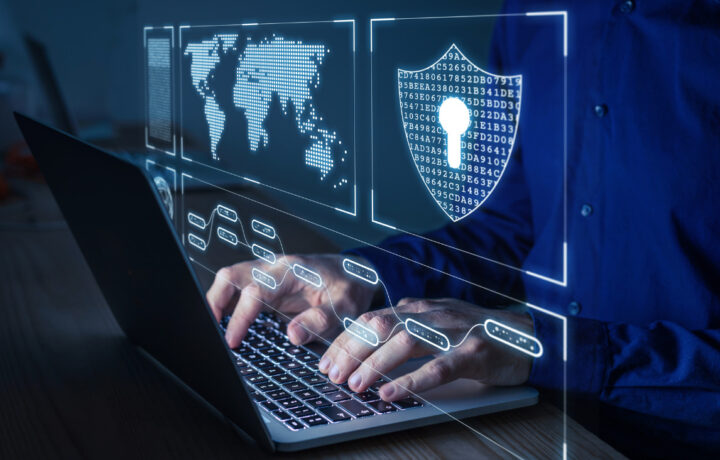In an era where our digital footprint is as significant as our physical presence, maintaining robust cyber hygiene is crucial for protecting personal information and ensuring online safety. On the third episode of the ClearanceJobs Gameshow, we test our knowledge on cyber practices. Listen along and see where your knowledge stands.
Take the Quiz
Test your own knowledge with the questions / answers.
- What is a common method hackers use to gain access to passwords?
A) Phishing B) Firewall C) Encryption D) Antivirus software - Which of the following is NOT a type of malware?
A) Ransomware B) Spyware C) Freeware D) Trojan Horse - What does the term “VPN” stand for, and what is its primary purpose?
A) Virtual Private Network; to secure and privatize your internet connection; B) Variable Protection Net; to filter out dangerous websites; C) Verified Public Network; to verify the safety of public Wi-Fi; D) Vital Password Notification; to notify users of password breaches - Which of the following cybersecurity practices is considered the weakest for securing accounts?
A) Using multi-factor authentication B) Creating long, complex passwords C) Changing passwords frequently D) Using the same password for multiple accounts - What is the main function of a Firewall in computer security?
A) To detect and remove viruses B) To manage the computer’s power supply C) To monitor and control incoming and outgoing network traffic based on predetermined security rules D) To encrypt data stored on the computer
ANSWERS:
- A) Phishing
- C) Freeware
- A) Virtual Private Network; to secure and privatize your internet connection
- D) Using the same password for multiple accounts
- C) To monitor and control incoming and outgoing network traffic based on predetermined security rules
10 Tips for Better Cyber Hygiene
Here are ten tips to bolster your cyber defenses.
- Use Strong, Unique Passwords: The foundation of good cyber hygiene starts with strong, unique passwords for each of your accounts. Consider using a passphrase or a password manager to generate and store complex passwords that are difficult to crack.
- Enable Two-Factor Authentication (2FA): Adding an extra layer of security beyond just a password can significantly reduce the risk of unauthorized access to your accounts. Two-factor authentication requires a second form of verification, such as a text message code or an authentication app, to log in.
- Regularly Update Software and Systems: Cyber attackers exploit vulnerabilities in outdated software and operating systems. Regular updates help patch these security holes and protect your devices from malware and other cyber threats.
- Be Wary of Phishing Attempts: Phishing emails or messages attempt to trick you into giving away sensitive information. Be skeptical of unsolicited communications, especially those that request personal data or direct you to a webpage where you need to input your details.
- Use Secure Networks: Public Wi-Fi networks can be hotspots for cybercriminals to intercept your data. Use a virtual private network (VPN) to encrypt your internet connection and shield your online activities from prying eyes.
- Backup Your Data: Regularly back up important data to an external drive or cloud storage. In the event of a cyber attack, such as ransomware, you can restore your data from the backup without succumbing to the demands of cyber extortionists.
- Educate Yourself About Cyber Threats: Awareness is your first line of defense. Stay informed about the latest cyber threats and the best practices for avoiding them.
- Secure Your Home Network: Change the default username and password on your home router and enable WPA3 encryption to protect your Wi-Fi network from unauthorized access.
- Limit Personal Information Shared Online: The more information you share online, the easier it is for a cybercriminal to target you. Be mindful about what personal details you post on social media and other websites.
- Use Antivirus Software: Install reputable antivirus software on your devices to provide real-time protection against malware and other cyber threats. Ensure it’s set to update automatically for the best defense.
Implementing these tips can significantly enhance your cyber hygiene, safeguarding your personal information and digital life against the ever-evolving landscape of cyber threats.



